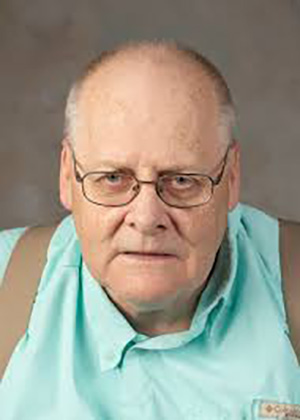By Greg Markley
Vice President Cheney told attendees at a media association’s dinner in 2007 that he asked his wife Lynne if the label Darth Vader, would fit him. According to Cheney, she said it “Yes, Dick, because it humanizes you.”
Baseball home-run king Hank Aaron died last week. Soft-spoken, courteous and honest; he needed no “humanizing.” Yet politician Rudy Giuliani, the much-ballyhooed hero of 9/11, has always been brash and in-your face. Now we learn he is dishonest, as well.
Alabama Gov. Kay Ivey, quickly after learning of Aaron’s death on Jan. 22, directed flags to be flown at half-staff immediately to honor the Hall of Famer, who died at age 86. In an official statement, Ivey praised the Mobile native.
“Hammerin’ Hank set numerous home run records throughout his baseball career, which ranged from the Negro Leagues to the Major Leagues,” the order said. “From his legendary career to his civil rights activism, he inspired many young boys and girls to pursue their dreams. Alabama is incredibly proud of our native son, and his legacy will forever be etched in history.”
The indomitable Aaron was 39 years old in 1973 when he hit 40 home runs in under 400 at-bats, a gallant try to break Babe Ruth’s record. But he finished that season at lifetime home run 713, one shy of his coveted goal. On Sept. 29, the last day of the season, I recall watching the game, at age 17. My friends joined me in rooting for him, on TV in the living room.
So Aaron did not get his 714th home run that year. A lot of things physically can go awry in one year, especially for a 40-year-old. Getting the magical 715th home run might seem not a big worry, but health risks do exist for 40-year-old players weakened by decades in the sport. Aaron knew he could play at least another year.
Knowing the racial climate, though, Aaron said his only fear was that he might not live to see the 1974 season. As an African American, he drew many death threats and fortunately was granted 24-hour Atlanta Police guards until the next season. He received bundles of hate mail during the 1973-1974 post-season. These were not just “poor sports” many were white nationalists who did not want a black man to beat Babe Ruth’s 47-year-old home run record.
Rudy Giuliani did not have an unblemished public record as Hank Aaron did. As mayor of New York City (1993-2001), he made many enemies among African Americans and constitutionalists for his “Stop and Frisk” profiling. His pugnaciousness hurt his governing; he needed better results from the city council than he might get with a more pleasing personality.
Then came the terrorist attacks on New York and DC on Sept. 11, 2001, just 3 ½ months before he had to leave office. Giuliani coordinated and executed his many tasks superbly, most historians say. Before 9/11, he helped the economy buzz and made the city work well again.
But even better as a crisis manager, Giuliani boosted confidence with a buoyant, “we can do it” attitude that earned him the nickname “America’s Mayor.” Although Rudy Giuliani had a sterling record as a U.S. Attorney in Manhattan, something happened that turned him from a hero to a heel.
What was this disaster to his career and self-respect? He signed up to be the personal lawyer to a politician who likes to dispense with established laws and customs. This old New York crony asked Rudy to perform legal contortions that even the famous Chicago lawyer Clarence Darrow couldn’t or wouldn’t do.
Giuliani, along with former federal prosecutor Sidney Powell, tried to win election fraud cases on behalf of President Trump. Nearly 50 such cases had failed in court and even the U.S. Supreme Court chucked out one case almost as soon as the mail clerk brought it into the building.
Giuliani’s team violated a main aspect of lawyering: Have at least some evidence on your side! He argued that the U.S. presidential election was stolen by Venezuelan President Hugo Chavez. This was despite Mr. Chavez having died in 2013. Chavez had succumbed to cancer — it was in all the papers, counsellor.
So what happened to the two opposites, Hank Aaron and Rudy Giuliani? Aaron completed his mission, and was the all-time home run champion for 33 years. In death, his on-the-field record is dwarfed by tales of his unassuming approach in a life of probity inside or outside the stadium.
Rudolph Giuliani? He is still with us, but is unrecognizable. The hero of 9/11 has shrunken to a loser. He faces a $1.3-billion defamation suit with Dominion Voting Systems. He has tarnished the image of America to provide honest elections. Even Rudy understands the evidence that he has reached a new low.
Greg Markley first moved to Lee County in 1996. He has master’s degrees in education and history. He taught politics as an adjunct in Georgia and Alabama. An award-winning writer in the Army and civilian life, he has contributed to the Observer for 8 years. gm.markley@charter.net

